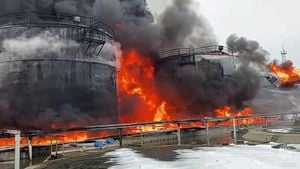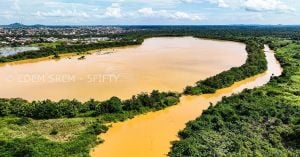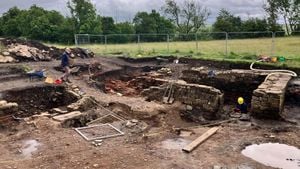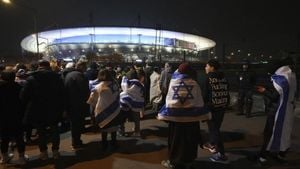Across the globe, few conflicts resonate with as much tension and sorrow as the long-standing clash between Palestinian resistance and Israeli response. The recent surge of violence has propelled the discourse surrounding this conflict back to the forefront, capturing the attention of individuals and governments alike. For many, it raises questions about justice, humanity, and the validity of resistance movements against systemic oppression.
Just under the sheen of national politics and military maneuvers lies the haunting reality of Palestinian prisoners. On November 6, 2024, the Palestinian Prisoners' Commission reported the death of Sameeh Eleiwi, aged 61, from Nablus. Eleiwi, who had suffered from severe health issues, was moved from Ramleh Prison clinic to Assaf Harofeh Hospital shortly before his passing. Critically, Eleiwi had been denied timely medical treatment and faced harsh conditions during his imprisonment, mirroring the experiences of countless detainees who endure systematic neglect.
His death was swiftly followed by the announcement of another casualty, Anwar Esleem, aged 44, from Gaza. Esleem was also said to have deteriorated rapidly, dying during transit from Negev Prison to Soroka Hospital. Both men’s deaths have drawn widespread condemnation and are seen as emblematic of Israel's broader policy of 'slow death' against Palestinian prisoners—a systematic approach characterized by medical neglect, torture, and deprivation of fundamental needs.
The Palestinian Prisoners’ Society highlighted over 10,800 arrests since the onset of renewed violence last October. The situation remains dire, not only for those imprisoned but for their families and communities as well, as more have been killed or injured in confrontations with Israeli forces.
One might not expect to find echoes of this struggle half a world away, yet the sound of similar cries for justice reverberated through the streets of Derry, Northern Ireland, during the recent Solidarity Week. Palestinian activists and leaders gathered there to discuss shared histories of resistance against colonialism. This collaboration emphasized the connection between different struggles, uniting echoes of Irish resistance with Palestinian liberation efforts.
Derry, known for its murals and vibrant history of civil rights struggles, became like a refuge for those who feel the piercing weight of oppression across the globe. The gathering, hosted by the Bloody Sunday Trust, brought together diverse groups—including the Palestinian Youth Movement and the Arab Resource and Organizing Center—to confront and analyze the devastating impacts of colonialism.
Participants noted the irony of seeking solace among people who’ve also endured significant oppression. The residents of Derry, steeped in their own troubled past with British colonialism, exhibited remarkable empathy and solidarity with their Palestinian counterparts. Their cultural bonds were fortified through shared experiences of grief, resistance, and resilience against overwhelming odds.
This shared trauma manifested distinctly during discussions of historical and current conditions, where martyrs from various movements appeared to illuminate the path forward. One powerful parallel presented itself during meetings with political prisoners, whose testimonies mirrored the experiences faced by imprisoned Palestinians.
Midway through the week, the sentiment became even clearer when exchanging stories about loss and struggles. Participants recounted the pain surrounding personal losses and echoed recollections of violence—both the historical brutality endured by communities and the current violence inflicted upon them. Derry’s streets, with their murals of solidarity, told stories of connection and resemblance across vastly different landscapes.
Yet, one can hardly overlook the looming political backdrop shaping these conversations. Recent developments within the U.S. political arena signal challenges for those resisting colonial powers. Under the potential future leadership of Donald Trump, whose administration may embrace more aggressive measures against anti-Zionist activism, the stakes for Palestinian and other marginalized advocates have never been higher.
The Heritage Foundation's "Project Esther", revealed potential strategies to silence dissent and persecution against those opposing oppressive measures. This initiative calls for crackdowns on dissenters, reflecting Trump’s emboldened political stance on Israel and enforcement of exclusive narratives surrounding anti-Semitism.
For activists across borders—from Palestinians to Irish nationalists—the stakes have escalated. The intertwining of resistance against colonial and racist agendas unites different movements driven by trauma yet fueled by hope for liberation. Struggles against systemic oppression don’t exist within vacuums; they intertwine, expose common enemies, and form unprecedentedcoalitions.
Backed by supportive communities, those bearing witness to the Palestinian plight can find strength. Whether it’s the underground networks of activists drawing parallels between their struggles or individuals gathering street murals to amplify shared causes, resistance emerges from myriad forms. While the path may be fraught with danger and heartbreak, solidarity must serve as a balm against despair and division.
Through the festivities juxtaposed against mournful memories, both Irish and Palestinian voices remind the world of the sacrifices borne from the struggle for dignity, freedom, and justice. History is not merely past—it's lived, spoken, and acted upon. Each narrative, each mural, each cry for liberation serves as reminders of humanity’s broader fight against oppression.
The notion of resistance is integral to humanity itself; it demands recognition, connection, and action. When voices collide—highlighting similarities and solidarity amid suffering—it creates ripples of change meant to disrupt the systemic designs of colonial powers. The fight for justice continues to ignite our spirits, carving paths of hope across borders and generations.
Indeed, as tensions continue to escalate, it's the combined histories and stories of resistance—like those told and celebrated during the Solidarity Week—that forge stronger bonds and illuminate paths toward collective liberation. From the streets of Derry to the fields of Gaza, the fight isn’t over; it’s just beginning.



